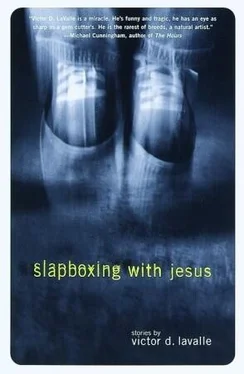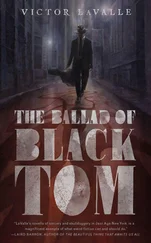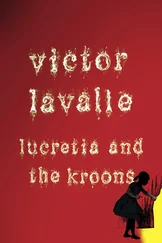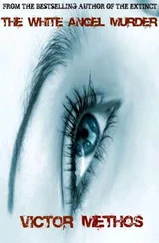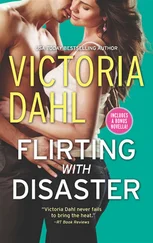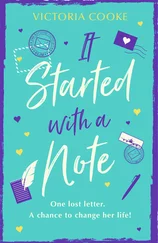After breakfast, for an hour, Cocoa and I took trains up and down the spines of Manhattan. Then we stood outside Washington Square Park, on the side farthest from NYU (Cocoa’s school), staring at three women he thought he knew. I was shaking my head. — No, no. You don’t know them. They’re way too pretty to be talking to you.
He spat, — You criticize when you get them herpes sores off your lips.
I touched my chin. — They’re only pimples.
— Then wash your face.
He’d been giving me advice since we were kids. He had thought that if he just told me how to be better I could be. Age ten was the first time for either of us that I acted up: when people whispering into telephones were talking about only me, a radio announcer was making personal threats (—Someone out there, right now, is suffering and won’t get relief until they’re our ninety-eighth caller and gets these tickets to Bermuda!). And Cocoa grabbed me tight as I dialed and redialed the pay phone in front of our building, screaming for someone to lend me twenty cents.
Cocoa walked and I moved beside him; we entered the park. The day was a cold one so the place wasn’t way too full like summers when you couldn’t move ten feet without having to dodge some moron with a snake on his shoulders or a cipher of kids pretending they’re freestyling lyrics they’d written down and memorized months before. — I saw Evette the other day, I told him.
He smiled. — What are you telling me that for? Anyway, she married someone didn’t she?
— Well, you staring at them three girls, I thought I’d tell you about one you actually got.
We had come to an NYU building and he told me to wait outside; he was angry that I’d brought up this woman with him trying so hard to be good; really, I don’t know why I did. When I’d called him a few days earlier, it had been because I knew I needed help, but once he was with me I avoided the issue.
My hands in my coat pockets, they were full of those used tissues from the flu in March. I had planned to keep them in a pillowcase under my bed when I got better, but those were all filled with the hairs I clipped off and saved, so it was September and I had never truly healed and my hands were full of dried snot.
Maybe if he hadn’t been doing so well, if his girl hadn’t been so pretty, if his grades weren’t soaring, if he’d been unhealthy, anything, but I couldn’t confide in someone doing so much better than me. I wouldn’t feel like I was asking for help, more like charity. The man he was now, I couldn’t sit down with him and go through all the events in my day to figure out which thing was damning me: that I woke up every day, alarmless, at seven-forty? that I couldn’t stand the taste of milk anymore? that I kept putting off a trip to the supermarket and so the cupboards and fridge were empty? that I had two pillowcases under my bed, one full of cut hair, the other full of old tissues? They all made sense to me.
They all had reasons: 1) for two years I’d had nine A.M. classes so now my body, even though I’d stopped attending, had found a pattern; 2) on campus two women had pulled me aside and shown me pamphlets about the haphazard pasteurization process, pictures of what a cow’s milk does to human lungs so that even just a commercial for cereal made my chest tighten; 3) I’d dated a woman who worked at the market two blocks away, had been too open in explaining my collections to her one night, sat dejected and embarrassed as she dressed and walked out forever, so I couldn’t go back in there even if it was silly pride; there wasn’t another grocery for blocks, when I needed food I just bought something already made and I was mostly drinking water now (to watch a cleansing process in myself) and you could get that from a tap. And 4) it wasn’t just my body, but The Body that I loved. So where others saw clippings as waste and mucus as excess, all to be collected and thrown away, spend no time on them, to me they were records of the past, they were treasures. Just tossing them out was like burying a corpse too quickly — rub your face against the cold skin, kiss the stony elbows, there is still majesty in that clay. People hate the body, especially those who praise the life of the mind. But even fingernails are miracles. Even odors. Everything of or in the body is a celebration of itself, even the worst is a holy prayer.
I found, as soon as he spoke, as I considered opening myself, I hated him again; I wanted to mention anything that would ruin his happiness. Like that, I brought up Evette and the night before it had been Wilma. Cocoa came out the building, pushing the glass door with power. Smiling.
— Your divorce come through? I asked.
He stopped, composed himself back to pleasure. — Today, a little boy was born.
— Yours? I thought it wasn’t for three or four more months. I was suddenly hopeful for the pain of something premature; I could talk to a man who was living through that kind of hurt.
— Not mine. Once a week I find out the name of a baby, a boy if I can, that was born. Newspaper, radio, Internet. This kid was born today, his father already posted pictures. Nine pounds seven ounces, man. Benjamin August something. He looked healthy. It’s good luck.
I laughed. — I bet that kid wasn’t born in the Bronx. If he was he’d have come out coughing. One fear of every South Bronx parent: asthma. It was enough to make Cocoa tap me one, hard, in the chest and I fell back onto a parked car. His child would be born in the Bronx, he didn’t want to be reminded of the dangers. I put my fists out, up. I’d been planning for this, not with him, but with someone. Had been eating calcium tablets every day, fifteen of them (student loan refund checks are a blessing), and now my bones were hard like dictionaries.
He didn’t hit anymore. It’s what I wanted.
Do you remember the hospital? Not torturous (well, maybe one time), no beatings though; it wasn’t even the drugs; try one word: boredom. You could move around but there was nothing to chase the mind, hardly even television if you weren’t always good. Just the hours that were eons sitting on a couch, a row of you, ten or twenty, no books, magazines too simple for the mildly retarded and your active mind leaps further and further over an empty cosmos, as lonely as the satellites sent to find life in the universe. But in there, at least, was when I’d realized how they waged their war, my enemies: through sockets and plugs, through a current.
We balanced on a corner as cabs passed by in yellow brilliance. It was late morning. I noticed how much energy was on: some streetlights never went off, people passing spoke on phones and the charged batteries glowed, radios came on and stayed on, computers were being run, every floor of every building. The taxi horns, engine-powered, began to sound like my name being called; I kept turning my head; the sounds bounced around inside my body, leafing through my bastard anatomy like I was a book of poems.
He spoke but the words were coming out of his mouth now all orange. I could see them, like the cones put out on the road at night to veer traffic away from a troubled spot. He said, — Look, let’s not get craz, uh, let’s not get agitated. I know someplace we could hang out. It’ll be real good.
The NYU banners flapped with the wind, loud enough to sound like teeth cracking in your head. And how many times had I heard that noise! Like in the last month maybe five; whenever the remote control wasn’t working or the phone bloopblopbleeped in my ear about no more Basic Service and I took each instrument between my teeth and bit down, trying to chew my anger out, that rage of mine which could take on such proportions.
Thought we’d catch the 4 to 149th and Grand Concourse — everybody out, everybody home. We could pass the murals of young men painted outside candy stores and supermarkets, where a thoughtful friend might have set out a new candle, where mourning seemed like a lifestyle. Instead we took the 6 and got out at 116th, walked blocks, then left, to Pleasant Avenue. My sister’s home.
Читать дальше
